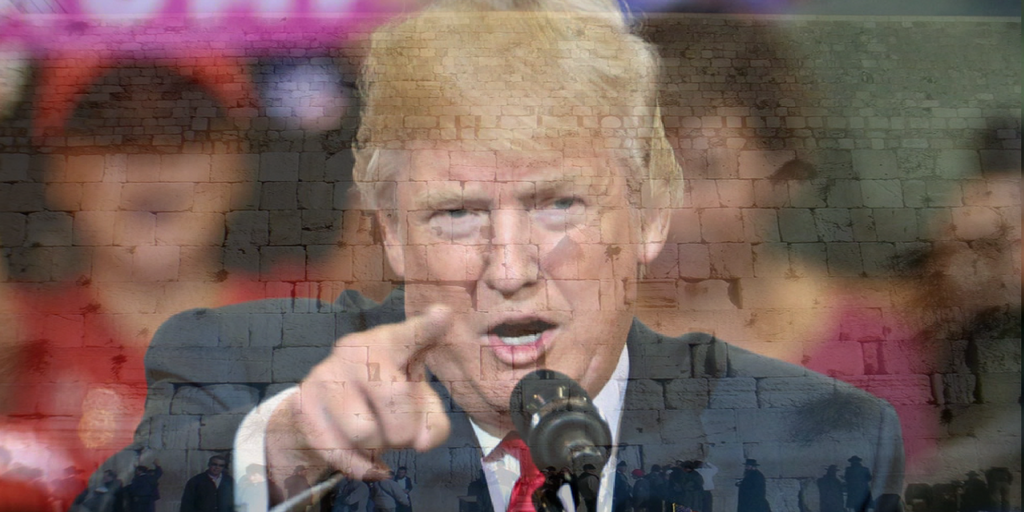Donald Trump has been President for just over 5 weeks. Yet on many fronts there is little doubt a new era has been birthed. One of the most obvious is relations with Israel compared to the previous 8 years under Barack Obama.
From the beginning of the Obama administration he was determined to put the US on a different path with regard to the Muslim world. Indeed, the first foreign leader he called was Mahmoud Abbas, President of the Palestinian Authority. Obama even made a point of telling Abbas his was the first call to a foreign leader, emphasizing his intent to signal a new direction for the US.
Obama furthered his effort at a new direction by making his first international speech in Cairo. During his address he lamented about how the Palestinians suffer “daily humiliation under occupation,” and criticized Israel for building “settlements.”
Plus, throughout his two terms, it was clear Obama did not like Israeli Prime Minister Netanyahu.
Right up to the bitter end the Obama administration went out much like it began, with a slap at Israel. The final kick in the stomach was UN resolution 2334, which singled out Israel’s construction of “settlements” as the main obstacle to peace. The US was intimately involved in the language of the resolution, yet not a word was mentioned about ongoing Palestinian terrorism and murder of innocent Israeli civilians. As a permanent member of the UN Security Council, the US has veto power and could have killed the resolution. However, knowing this would be his last opportunity to make a statement against Israel, Obama directed the US to abstain from the voting, thus allowing it to pass, cementing his legacy as the most anti-Israel US President.
One Door Closes, Another Opens
Contrast this against the early stages of the Trump administration. Throughout his campaign he made it clear that the US had treated (Israel) its best Middle East ally terribly. Since taking office the difference can only be described as startling.
For example, he has called the Iran nuclear deal “the worst deal ever negotiated,” and has already imposed new sanctions on Iran.
His Secretary of State Rex Tillerson criticized former Secretary of State John Kerry for how he handled Israeli-Palestinian issues. “Israel is, always has been, and remains our most important ally in the region” according to Tillerson. He characterized UN resolution 2334 as an effort to “coerce” Israel to change course, further stating, “that will not bring a solution.”
Trump’s Ambassador the UN Nikki Haley has already come out swinging against the overwhelming anti-Israel sentiment which dominates the organization. After attending her initial Security Council meeting and witnessing the absurd obsession it has with Israel she said “the United States will not turn a blind eye to this anymore. “ Additionally she stated “the United States is determined to stand up to the UN’s anti-Israel bias.” She went on to say “we will never repeat the mistake of resolution 2334 and allow one-sided Security Council resolutions to condemn Israel.” Haley called the UN’s double-standards “breathtaking.”
In fact President Trump is so upset at how unfairly Israel is treated by the UN, there is some discussion that the US may be considering withdrawing from the UNHRC. Could anyone imagine Obama doing this?
Trump has also indicated he will move the US Embassy to Jerusalem. However, this is still under discussion.
In another clear effort to demonstrate US-Israel relations have changed Trump invited Prime Minister Netanyahu to a meeting at the White House. (He also invited Netanyahu to his inauguration)The chemistry between the two of them was obvious and in stark contrast to the strained relations with former President Obama.
Let the Parties Decide for Themselves
During a press conference Trump moved the peace process in a heretofore new direction by backing off the long-standing US policy pushing for a two-state solution. He made it clear the position of the United States is to have the two parties negotiate a solution between themselves, saying “I want the one both parties want,” referring to a deal.
This doesn’t suggest the US is against a two-state solution, because Trump has indicated he would be fine with it. However, in a clear departure from the Obama administration’s attempts to strong arm Israel, the Trump administration is saying let the two sides negotiate their own deal.
Such a stand by the US sends a blunt message to the Palestinians that Israel has every right to expect them to come to the table without pre-conditions, and has the freedom to tell the Palestinians what their conditions are for a resolution to the conflict, without being bullied by the US. Abbas has made it known he isn’t happy about this by stating his commitment to a two state solution and demanding the world recognize Palestine. In my view Abbas missed a golden opportunity to demonstrate some flexibility and strike a deal during the 8 years of the Obama administration, which was clearly more favorable toward the Palestinians.
For example, he could have urged Abbas to amend the charter of his Fatah Party by eliminating the language requiring Israel’s destruction, as a gesture toward being a genuine peace partner. Moreover, he could have cut off US aid because Abbas uses US money to pay huge salaries to terrorists who have murdered Israelis. These are just two examples of how Obama could have been more even handed with the Palestinians. He did neither of these.
On several occasions Obama tried to almost force Israel to accept a two state solution. He showed more interest in promoting self-determination and dignity for the Palestinians, than understanding Israel’s obvious need for security and a genuine peace partner willing to recognize Israel’s right to exist as a Jewish state.
While it is still very early in the administration of Donald Trump, there is little doubt as Bob Dylan once sang “the times they are a-changin’.
View more of Dan Calic’s articles on his Facebook page.
[huge_it_share]

